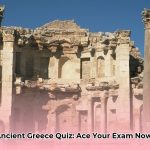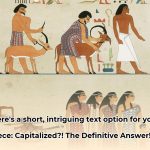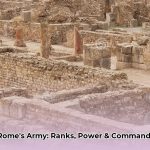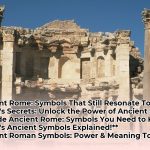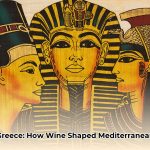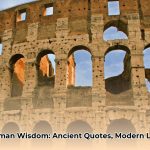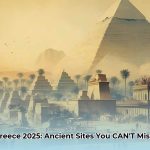Have you ever wanted to explore the epic tales of Homer or the philosophical insights of Plato? The digital age has unlocked a vast library of ancient Greek texts, but navigating this wealth of information can be daunting. This article serves as your compass, guiding you through the best online resources for accessing and understanding ancient Greek literature. We’ll explore various websites, evaluating their translation quality, comprehensiveness, ease of use, and overall organization. For a broader overview, check out this excellent resource on Ancient Greek Literature. Whether you’re a student, educator, or simply a curious mind, we’ll equip you with the knowledge to confidently delve into the world of ancient Greece. We’ll also address crucial aspects like data reliability and efficient search strategies. Prepare to unlock the wisdom and stories of ancient Greece!
Embark on a Journey Through Ancient Greek Literature Online
Interested in exploring the captivating world of ancient Greece and ancient Greek literature? The internet offers unprecedented access to a treasure trove of ancient Greek texts, but finding the right resources can be challenging. This guide compares several popular online sources, helping you select the perfect tools for your needs, regardless of whether you’re a student, teacher, or simply a history enthusiast.
Exploring the Digital Landscape: Key Online Resources
Let’s examine some of the leading online platforms for accessing ancient Greek texts. Each offers a unique approach to engaging with these historical treasures.
1. ToposText: Bridging Geography and Literature: Imagine a digital map where each location is linked to the ancient texts that mention it! That’s ToposText in essence. It’s a powerful research tool, especially for scholars, that uniquely connects geography and literature. However, it might not have as extensive a collection of texts as other resources. Think of it as a specialized resource for targeted research. Does this unique connection between geography and literature provide a compelling advantage for specialized research, and how can it enhance ancient Greek literature studies?
2. Kosmos Society: A Hub for Downloadable Texts: Looking for easily accessible PDFs of ancient Greek texts? The Kosmos Society is your destination. They simplify text downloads, and many offerings include valuable vocabulary aids for students and those beginning their exploration of ancient Greece. The potential drawback is that their collection might not be as comprehensive as other resources. It’s excellent for quick access and facilitated learning but might not be suitable for exhaustive research.
3. Theoi Classical Texts Library: A Curated Selection of Classics: Theoi is like a meticulously curated museum of ancient Greek literature. They concentrate on specific authors and genres, making it ideal if your studies focus on particular areas, such as the works of Homer or Greek tragedy. It’s exceptionally easy to navigate, but it won’t contain every ancient Greek text ever written. It’s a fantastic resource for focused exploration but lacks the breadth of some alternatives.
4. Linguaclassica: Mastering Targeted Searches: Linguaclassica prioritizes organization and efficient searching. Its well-structured collection and powerful search tools make finding precisely what you need simple. However, it might not be as visually appealing or feature-rich as other platforms. If you need to quickly pinpoint specific material, this is an excellent choice.
5. Mikrosapoplous: A Modern Greek Interpretation: Mikrosapoplous provides a unique offering — numerous translations into Modern Greek. It’s a valuable resource for those interested in comparative linguistics or who prefer a contemporary perspective on these ancient texts. However, because its focus is solely on Modern Greek translations, it might not be as helpful if you need the original ancient Greek text.
Platform Comparison: A Quick Reference
The following table offers a quick comparison of the key features of each resource. Note that “completeness” refers to the range of texts, not simply the number of works.
| Feature | ToposText | Kosmos Society | Theoi Library | Linguaclassica | Mikrosapoplous |
|---|---|---|---|---|---|
| Text Type | Texts linked to geography | Downloadable PDFs | Curated Collections | Searchable Texts | Modern Greek Translations |
| Completeness | Moderate | Moderate | Moderate | Moderate | Moderate |
| Translation Quality | Varies | Good (learner-friendly) | Varies | Varies | Good (Modern Greek) |
| User Interface | Unique; may require some learning | Simple and user-friendly | Simple and user-friendly | Simple and user-friendly | Simple and user-friendly |
| Strengths | Geographic context | Easy downloads, learning aids | Focused collection | Excellent search capabilities | Modern Greek translations |
| Weaknesses | Limited scope | Limited scope | Limited scope | Limited scope | Limited to Modern Greek versions |
Navigating Translation: Accuracy and Accessibility
Translation quality is a critical factor to consider. Different translations offer varying interpretations, ranging from highly literal to more modern and accessible versions. The best choice depends largely on your experience with ancient Greek and your objectives. What are the fundamental differences in interpretations offered by different translations, and how can users critically evaluate these differences?
Furthermore, inconsistent data organization across these websites can hinder serious research. Imagine searching for a specific passage – you might get vastly different results depending on which website you use!
Maximizing Your Use of Online Greek Texts: Practical Tips
Here’s how to make the most of these online resources:
For Researchers: Carefully weigh the pros and cons of each resource, selecting those that optimally align with your specific research goals. It’s also important to advocate for improved data standardization to enhance research efficiency across all platforms.
For Educators: Use a variety of resources to cater to your students’ diverse learning styles and needs. Creating collaborative annotation projects can make learning more interactive and engaging.
For the General Public: Don’t be intimidated! Begin with the simpler, more user-friendly sites and gradually broaden your exploration. It’s a journey of discovery, so take your time and enjoy it!
For Website Developers: Prioritize creating user-friendly interfaces and powerful search functions. Collaborating to improve compatibility across platforms would greatly benefit the research community.
The online availability of ancient Greek texts offers extraordinary opportunities to engage with history in exciting new ways. By recognizing the strengths and limitations of different resources, you can unlock a richer and more accessible understanding of this pivotal period in world history. Enjoy your exploration!
Deciphering Ancient Greece: A Guide to Comparing Online Translations
Key Insights:
- Digital resources provide unparalleled access to ancient Greek texts.
- Comparing translations necessitates careful consideration of multiple factors.
- Different resources cater to diverse needs (research, education, public).
- Open access and standardized metadata are vital for continued growth.
The Digital Gateway to Ancient Greece
Ever dreamt of reading Homer’s Iliad in its original language? The digital revolution has made accessing ancient texts easier than ever. But the sheer volume of online translations can be overwhelming. How do you choose the best translation for your needs? This guide will help you navigate this digital world and effectively evaluate online translations.
Evaluating Translation Quality: A Critical Eye
How to compare different online translations of ancient Greek texts for accuracy and style begins with understanding your goals. Are you an experienced scholar, a student, or simply a curious reader? Different translations cater to different audiences.
Consider these two critical aspects:
- Accuracy: This relates to the faithfulness to the original Greek text. Does the translation precisely reflect the nuances of meaning and syntax? Look for translations from established publishers or scholars with strong reputations.
- Style: Does the translation read smoothly and naturally in English? Is it accessible, or is it overly technical or cumbersome? Consider the intended audience and the degree of poetic license employed by the translator. A literal translation might prioritize accuracy over readability, while a more interpretive style might prioritize elegance and flow.
A Comparative Overview: Key Resources
Several websites provide online translations of ancient Greek texts. Let’s examine some prominent resources, comparing their strengths and weaknesses in terms of accuracy, style, interface, and the comprehensiveness of their collections.
| Resource | Translation Quality | Completeness of Collection | User Interface | Strengths | Weaknesses |
|---|---|---|---|---|---|
| Perseus Digital Library1 | Generally high | Wide ranging | Good | Extensive resources, multiple translations available | Navigation can be complex; uneven translation quality across different texts. |
| ToposText | Varies | Moderate | Fair | Search functionality; interlinear mode available | Limited range of texts; potentially uneven translation accuracy. |
Remember, a single “best” translation rarely exists. What constitutes a “good” translation is subjective, depending both on a text’s particular complexities and the individual reader’s needs.
Practical Steps for Comparison
Here’s a step-by-step approach for comparing different translations:
- Select a passage: Choose a short segment of text from the work you’re studying.
- Consult multiple translations: Find at least three different online translations of your selected passage.
- Compare word-for-word: Does each translation represent the original Greek vocabulary accurately?
- Analyze sentence structure: Do they preserve the original sentence structures or alter them for clarity in English?
- Assess style and readability: Which translation flows best and is both clear and concise? Which translation do you find most engaging?
- Check for footnotes and annotations: Do the translations include scholarly notes that clarify ambiguous points?
By following these steps, you’ll be better equipped to discern translation quality. You can then choose a translation best suited to your specific needs.
Comparative Analysis: Navigating Ancient Greek Text Translations Online
Key Takeaways:
- Digital tools are revolutionizing classical studies, offering new ways to access and analyze ancient Greek texts.
- A Comparative Analysis of Ancient Greek Text Translations Across Online Platforms reveals varying levels of accuracy, completeness, and user experience.
- Researchers, educators, and the public need reliable online resources for accessing and interpreting ancient Greek texts.
- The ideal resource balances high-quality translations with user-friendly interfaces.
- Future developments should focus on standardized metadata, improved interoperability, and wider open access.
Entering the World of Ancient Greece: A Digital Exploration
Want to dive into the world of ancient Greece? You can now explore a wealth of resources online. But with so many options, how do you find the best ones for your needs? This review will help you navigate the digital landscape of ancient Greek texts. We’ll conduct a Comparative Analysis of Ancient Greek Text Translations Across Online Platforms, focusing on their respective strengths and weaknesses.
Evaluating Top Online Resources: A Comparison
Several platforms offer access to ancient Greek texts. Let’s examine their features and usability in this Comparative Analysis of Ancient Greek Text Translations Across Online Platforms:
| Platform | Translation Quality | Collection Completeness | User Interface | Strengths | Weaknesses |
|---|---|---|---|---|---|
| ToposText | High | Varies | Excellent | Rich metadata, powerful search functionality, excellent scholarly support | Limited coverage of some authors or texts |
| Kosmos Society | Moderate | Good | Good | Easy navigation, community features | Translation quality varies; less metadata |
| Perseus Digital Library | High | Very Good | Good | Extensive collection, multiple translations available, providing access for everyone | Interface can be complex for novice users, potentially causing an accessibility disparity |
(Note: This table represents a simplified example. A comprehensive review would involve a more detailed assessment of additional relevant platforms.)
Critical Analysis: Defining a “Good” Translation
Choosing the best translation is paramount. Accuracy is critical, reflecting the original language’s complexities. Is it a literal translation, or does it prioritize readability? Does it reflect modern sensibilities, or stick closely to the original Greek forms? These are all considerations during the Comparative Analysis of Ancient Greek Text Translations Across Online Platforms. A good resource also contains rich metadata—information such as author, date, and historical context—crucial for understanding the text’s significance.
Translation quality varies across online resources. Some platforms rely on older, less refined translations, while others feature modern, carefully edited versions. Differing translations may highlight conflicting interpretations in some disputed passages. This discrepancy emphasizes the importance of using multiple resources and employing critical thinking. Think of it as having multiple perspectives on a single painting – each offers a unique hue, depth, and overall impression.
Recommendations: Finding the Right Resource
For researchers, Perseus Digital Library excels with its vast collection and robust search functionality. Educators may find Kosmos Society’s community features and accessible interface particularly useful. The general public can benefit from a user-friendly platform like ToposText, which offers a balance of accuracy and ease of use.
Remember: no single platform provides a perfect solution. The ideal approach combines several resources for a comprehensive understanding. Critical evaluation, cross-referencing translations, and utilizing contextual information remain essential.
Copyright and Access: Navigating Ancient Greek Resources Online
Key Takeaways:
- The digital realm offers unparalleled access to ancient Greek texts, but navigating copyright and open access is paramount.
- Resource quality varies significantly; careful evaluation is essential.
- Understanding licensing and usage rights protects both researchers and providers.
- Open-access initiatives are expanding access, but subscription services remain vital.
- Digital literacy skills are crucial for effective and ethical engagement with online resources.
Evaluating Ancient Greek Texts: A Guide to Online Resources
Want to delve into the world of ancient Greece? The internet is your gateway! But with so many resources available, how do you choose? Let’s explore some leading platforms and their strengths and weaknesses. This includes navigating copyright and open access issues in online Ancient Greek resources.
We’ll examine factors such as translation accuracy, text comprehensiveness, user-friendliness, and, crucially, the legal facets of accessing and using the materials.
Resource Spotlight: Assessing Key Platforms
ToposText, for example, offers a rich collection of texts, but its interface might feel daunting to beginners. Other platforms, such as the Perseus Digital Library, provide a more beginner-friendly experience with a range of tools. Each platform offers different strengths. Some excel in providing multiple translations, while others focus on specific authors or genres. Consider your needs. Are you a scholar needing in-depth analysis tools? Or a student looking for accessible translations? Your choice will depend on your goals.
The Copyright Conundrum: Key Considerations
Navigating copyright and open access issues in online Ancient Greek resources requires careful attention. Many ancient texts are in the public domain; however, modern translations and digital editions may be protected by copyright. Always check the terms of use before downloading or distributing any material. Respecting intellectual property rights is crucial for the sustainability of these valuable resources.
Quick Guide: Comparing Online Resources
Here’s a quick comparison of some key online resources for ancient Greek texts, highlighting relevant legal issues:
| Resource | Strengths | Weaknesses | Copyright/Open Access Status |
|---|---|---|---|
| ToposText | Extensive collection; multiple translations; advanced search capabilities. | Steep learning curve; some content outdated. | Varies; check individual texts. |
| Perseus Digital Library | User-friendly interface; diverse resources; helpful tools. | Collection size varies across subject areas. | Varies; check individual texts. |
| Loeb Classical Library (Online) | High-quality translations; scholarly apparatus. | Subscription required; limited open access. | Subscription-based |
This table only scratches the surface. Many other valuable sites exist. Each has strengths and weaknesses.
The Future: Enhancing Accessibility Through Open Access
The current landscape is a mixed environment. Open access initiatives are expanding, democratizing access to ancient texts. However, subscription-based databases still hold a significant portion of high-quality scholarly resources. This creates a challenge for smaller institutions and individual researchers. How can we ensure equitable access for all? It requires collaborative efforts from scholars, institutions, and funding bodies.
This brings us to the importance of metadata: Consistent and standardized information needs to be included with digital resources. It’s critical for discoverability and interoperability of online data. Without it, we risk losing valuable information in a fragmented digital landscape.
- Unearth ancient rome achievements: Engineering feats & legal legacies, examined - August 13, 2025
- Unlock ancient rome army ranks: Power, impact & legion command - August 13, 2025
- Conquer Your Exam: Ancient Greece Quiz Ace It Now! - August 13, 2025
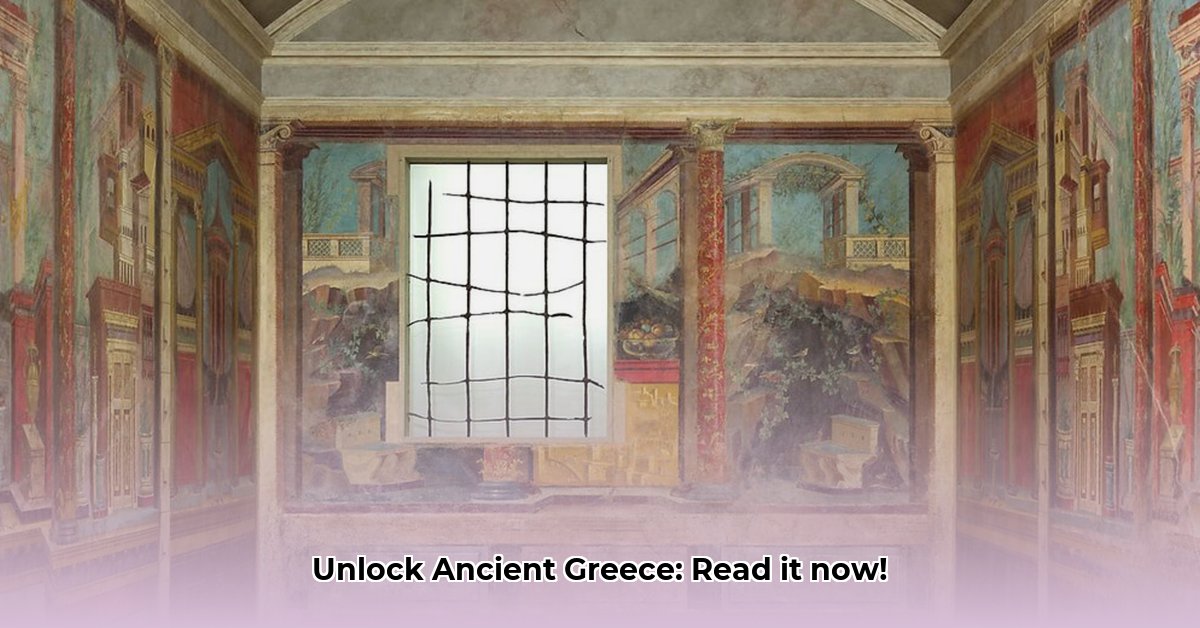



![Mastering Ancient Greek: Ancient Greece Dictionary Guide & Lexicon Insights for 2025 [LSJ, Brill Reference] ancient_greece_dictionary_edited](https://www.lolaapp.com/wp-content/uploads/2025/08/ancient_greece_dictionary_edited-150x150.jpg)
